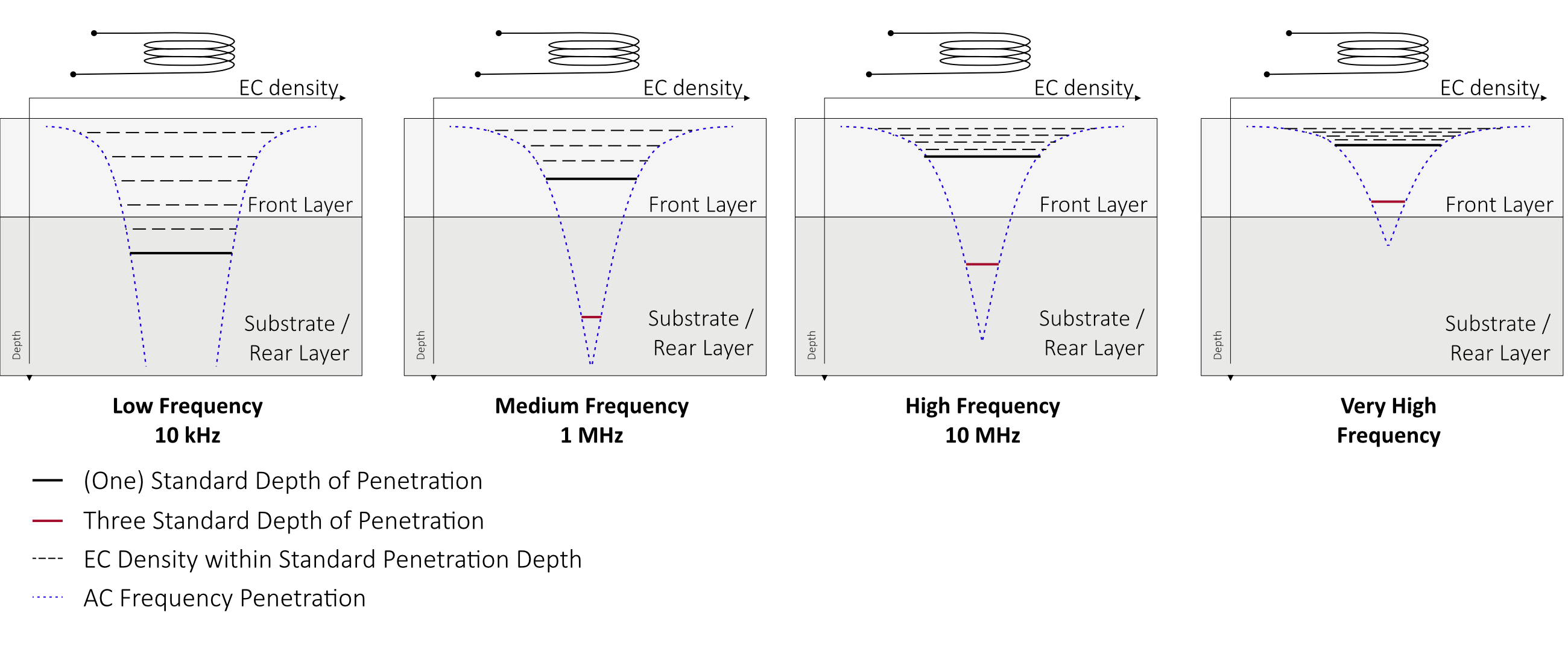For product requests contact us by using the
- Contact formular,
- Email (sales@suragus.com) or
- Phone (+49 351 32 111 520).
This tool calculates the Standard Penetration Depth – the depth at which the eddy current density has decreased to 1/e of the surface density – according to the following equation for an eddy current sensor at an operating frequency f:

where f = frequency, µ = permeability, σ = electrical conductivity, µr = relative permeability, ω = angular frequency
The calculator converts theoretical values based on the formular above. We do not vouch for its correctness and applicability to specific conditions.
Similar to 4PP, the eddy current method is also able to determine the resistivity if thickness of the specimen is larger than the penetration depth of the induced currents. The key difference is that the penetration depth of the currents is much smaller than with 4PP setups even if one would use very small tip distances. The penetration depth, meaning the analyzing area for resistivity measurement depends on several factors. The depth of the eddy currents penetrating into a material is affected by the frequency of the eddy currents, the electrical conductivity and magnetic permeability of the specimen.
The depth of penetration decreases with increasing frequency and increasing conductivity and magnetic permeability. The depth at which eddy current density has decreased to 1/e, or about 37% of the surface density, is called the standard depth of penetration (d or 1d) and is used as criteria of ideal measurement for the investigation of bulk materials. At three standard depth of penetration (3d), the eddy current density is down to only 5% of the surface density. Further details are shown in our.

The calculator converts theoretical values based on the laws of physics. We do not vouch for its correctness and applicability to specific conditions.
For product requests contact us by using the